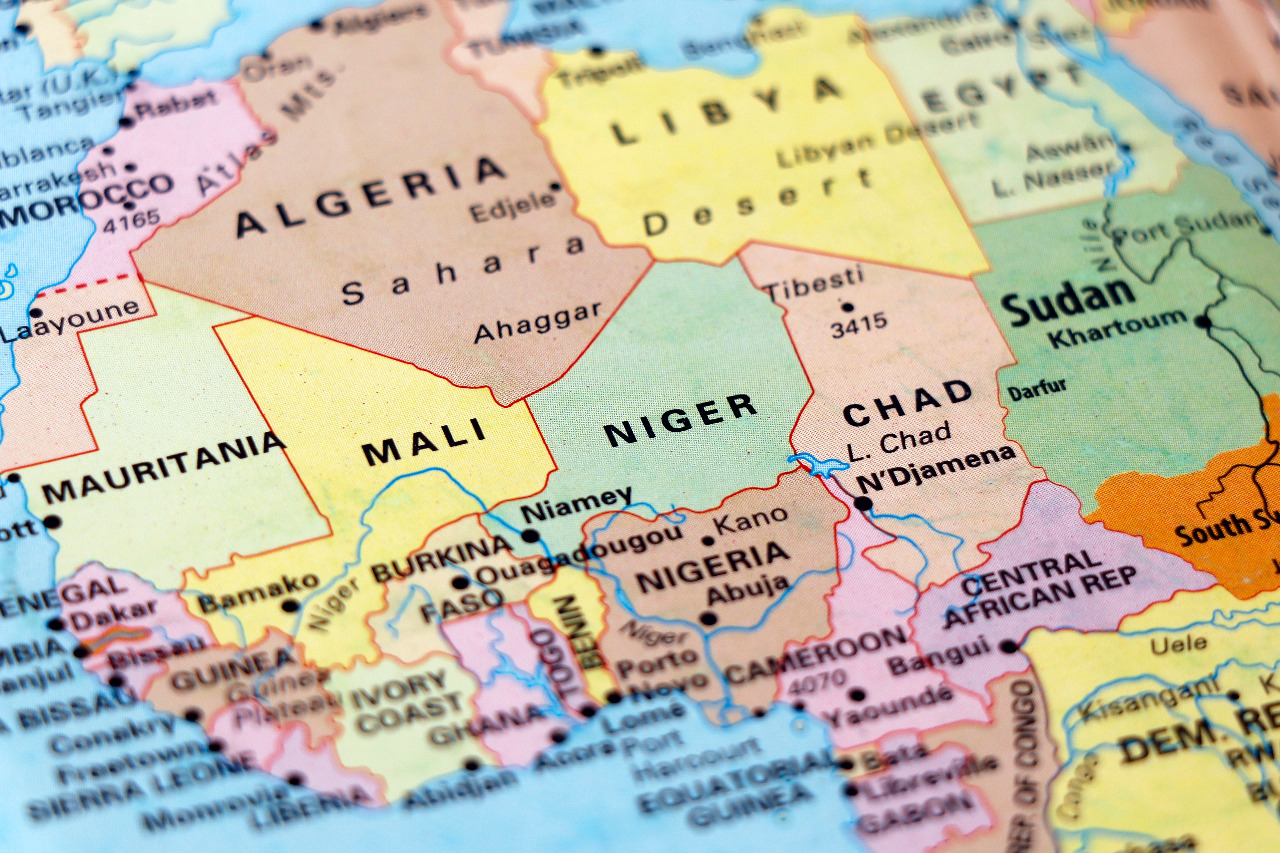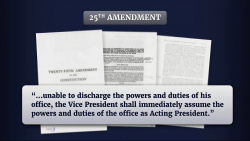
Africa’s Role in the U.S. National Interest
The Trump administration now has a golden opportunity to redefine Africa’s role in the U.S. national interest.
The Trump administration’s foreign aid freeze, dissolution of USAID contracts, and mineral production executive order have marked a decisive pivot in US foreign policy. The executive branch aims to reconfigure overseas engagement not as a primarily humanitarian effort, but as a component of national self-reliance.
At the center of this recalibration, Africa —long exiled to the periphery of American foreign policy — now occupies a more pivotal role in the global race for critical minerals. As the United States confronts a widening gap between critical mineral demand and domestic production capacity, partnerships with mineral-rich African nations have become indispensable. Development assistance is no longer an end in and of itself but a lever to secure inputs, restructure supply chains, and reinforce strategic alliances.
This means we are going to see the rise of development finance as a vehicle of national power. The termination of 5,341 foreign aid projects underscores more than bureaucratic reduction. It instead signals a decisive shift away from the post-Cold War model towards a realist framework rooted in industrial policy, economic utility, geopolitical leverage, and supply chain resilience.
The Trump Administration and Critical Minerals
This shift is inextricably linked to the growing importance of critical minerals to U.S. national security. Centered on preventing China’s hegemony, the second Trump administration is rapidly attempting to secure essential resources. When not even a hundred days into his second presidency, for example, President Trump proposed a minerals-for-security deal with Ukraine, broadcasting to all of America’s international partners what the priorities of this administration will be. Most recently, the administration brokered a US-mediated peace agreement between Rwanda and the Democratic Republic of the Congo, linking regional stability to America’s access to Congolese cobalt and copper.
That is why, more than merely a frustration with aid inefficiencies, these new policies signal a fundamental reorientation of US development priorities. This policy approach, evident in the recent executive order, “Immediate Measure to Increase American Mineral Production,” outlines a selective, “America First” blueprint for accelerating the domestic production of critical minerals by reducing regulatory barriers, expediting permits, and mobilizing federal lands for critical minerals extraction, refining, and processing.
It leverages the provisions of the Defense Production Act to streamline private capital investment in domestic mineral projects and makes the Secretary of Defense one of the primary authorities in coordinating industrial policy planning and public-private cooperation. Most importantly, the executive order positions the Export-Import (EXIM) Bank and the Development Finance Corporation (DFC) as key mechanisms for industrial policy.
The directive, however, is incomplete in addressing the role of American allies abroad in bridging the gap beyond offtake agreements between the United States’ domestic production capabilities. This has the potential to create a vacuum in key regions, further limiting deterrence against adversaries. Positioning America’s African partners as afterthoughts, it incentivizes alignment away from the United States and paves the way for more of the PRC’s disastrous Belt and Road-related projects on the continent.
At the same time, the United States plans to shore up its manufacturers and invest billions in its extraction and processing infrastructure. While Trump’s executive order points the United States in the right direction regarding mineral production, partnerships with established mineral-rich countries, particularly in Africa, are crucial. The United States needs its allies in the Global South to mend the gap between production capacity and demand.
The administration has adopted an approach that diverges from the status quo, presenting a unique opportunity to engage with African countries and counter the Chinese Communist Party’s own development agenda. A more proactive direction for US policymaking in Africa can take shape through the funding of the discovery, extraction, and beneficiation processes alongside a coordinated maritime security arrangement.
The Importance of Africa
According to the information provided by the U.S. Geological Survey, Africa holds many of the critical minerals required to counter China and achieve industrial independence. The Democratic Republic of Congo (DRC) alone holds over seventy percent of global cobalt, sixty percent of global coltan, and ten percent of global copper, while the rest of the continent holds seventy-two percent of global chromite, sixty-eight percent of global platinum, forty-three percent of global manganese, thirty to thirty-five percent of bauxite, twenty-one percent of global graphite, ten percent of global tungsten, and a rapidly growing share of global lithium. These resources are critical for American electric vehicle battery production and for developing semiconductors, electronics, military-grade metals, defense technology development, and other vital infrastructure.
While Africa’s mineral wealth holds immense potential, its strategic value extends beyond acknowledging its abundance and untapped potential. It demands a concerted investment in exploration, extraction, and processing to build resilient supply chains.
President Trump recently announced, “We have closed the USAID group to eliminate waste, fraud, and abuse… and we’re working tirelessly to forge new economic opportunities involving both the United States and many African nations.”
That vision demands more than aid reform; it requires a strategy that positions African countries as key partners in securing the raw materials underpinning America’s economy and industrial base. The Trump administration must therefore prioritize critical mineral exploration and discovery among its strategy for resilient, self-sufficient supply chains as part of these new economic initiatives. China has long controlled critical supply chains, actively leveraging its power to impose market restrictions on the United States and others. In response to the recent tariffs, China has intensified its control over global supply chains by imposing export restrictions on seven key rare earth elements. These minerals are vital for advanced technologies, as well as for constructing a sophisticated defense apparatus and vehicle fleet.
China’s chokehold on critical mineral exports underscores the need for the United States to rapidly diversify its supply chains. Elements such as copper, cobalt, lithium, gallium, germanium, and antimony are vital components for critical infrastructure, yet American domestic production of them falls short of demand. To maintain economic and technological leadership in an increasingly competitive and chaotic global landscape, the United States must return to its mineral-rich allies in Africa with a long-term investment framework.
The Path Forward
First, the United States should continue its commitment to the Supply Chain Resiliency Initiative (SCRI), which began in 2022, and urge its G7 partners to help meet the 2027 $600 billion fundraising goal to support its global infrastructure funding. The United States should also provide support infrastructure for the transportation and refinement of these minerals.
American trade agreements and investments with African countries should focus on developing the capacity to implement the first two main stages of critical minerals processing before direct transfer to the United States: extraction and beneficiation.
Beneficiation, the “ore processing” phase, offers the United States a strategic opportunity to raise the value of raw materials while fostering economic development in partner states. It improves the quality of the rock to produce a higher-grade product. By investing in and developing local capacity, the United States can distinguish itself from the exploitative practices leveraged by Russia and China, securing long-term relationships for the benefit of both parties.
These projects align with US strategic interests, form durable partnerships, and subvert the influence of malignant actors. To succeed, these partnerships will require targeted SCRI-backed investments in energy access, processing equipment, and upgraded transportation infrastructure connecting inland extraction sites to coastal hubs. These investments will strengthen resilience on both ends of the supply chain while advancing a mutually beneficial strategic partnership that deters malignant influence.
As the United States contemplates the next phase of its Africa strategy, it must weigh the strategic implications of trade and diplomacy and learn the lessons from its past mistakes and China’s exploitative practices on the continent. It must first approach diplomacy with the view of Africa as a development partner, not a neocolonial fiefdom. In the post-Cold War era, major powers recast their geopolitical focus in Africa and the “Third World” towards a development and commercial agenda. Reframing the relationship requires learning from the failures of this history and seriously committing to long-term capacity building.
Second, Congress should renew the African Growth Opportunity Act. The African Growth and Opportunity Act (AGOA), set to expire in September 2025, is a non-reciprocal trade preference program to encourage African economic growth through duty-free access to US markets.
In its current form, the AGOA is obsolete for the purposes of complementing the administration’s agenda for industrial policy, development finance, and burden sharing. However, if repurposed as a geoeconomic instrument, the AGOA can serve two strategic purposes: enable the upstream participation of America’s African partners in strategic supply chains, as well as construct a modern supply chain security apparatus that meets current national security imperatives. The AGOA can directly support the administration’s executive orders on domestic mineral production while reducing dependency on adversary-controlled supply chains.
Congress should amend the eligibility criteria to include business development in critical mineral exploration, refining, and supply chain mapping. Countries that participate in upstream mineral partnerships should be classified under a supply chain resilience-based preference tier. The United States can leverage such a program to invest in the industrial infrastructure of countries seeking to bilaterally participate in mineral cooperation agreements.
Furthermore, in order to mobilize US private sector investment, the AGOA should be linked to DFC and EXIM financing tools, enabling partner countries to develop capital and infrastructure, processing equipment, and transport systems. This integrated approach would make the AGOA into a forward-looking, proactive vehicle for US-Africa industrial policy and trade.
By investing in exploration, extraction, and beneficiation processes, the United States will enhance its economic, technological, and national security capacity and fortify a more resilient global economy, especially when a sea of malicious actors seeks to reshape the current liberal order.
The triad of economic, military, and diplomatic imperatives underscores the need for a comprehensive US strategy that integrates the Trump administration’s development finance ambitions along with security planning and long-term partnership building.
The USAID pause and the “Executive Order to Increase American Mineral Production” are not isolated decisions; they are indicators of a deeper strategic recalibration. The United States must now choose whether it will geopolitically sideline Africa or embrace it as a key player in reorienting the US’s national interest. The United States can pivot away from Cold War-era development and pursue serious security-driven partnerships that empower African nations to play a central role in the upstream value chain of critical minerals.
Now, President Trump has the chance to fit Africa into the national security puzzle, unlocking a new era of geopolitical influence through development finance and enduring partnerships. If America wants to lead the next century and prevail in great power competition, it will require moving Africa off the sidelines and toward the center of its foreign policy strategy.
About the Authors: Natalia Lopez and Khalil Winzer-Wilks
Natalia Lopez is a rising senior at the University of Florida studying economics and political science, and the founder of the student publication “The Florida Finibus.”
Khalil Winzer-Wilks is a rising senior at Howard University studying history and international affairs, and a columnist at the campus paper “The Hilltop.” Both are alumni of the Hudson Institute Political Studies Program.
Image: Shutterstock/Libin Jose
The post Africa’s Role in the U.S. National Interest appeared first on The National Interest.
















